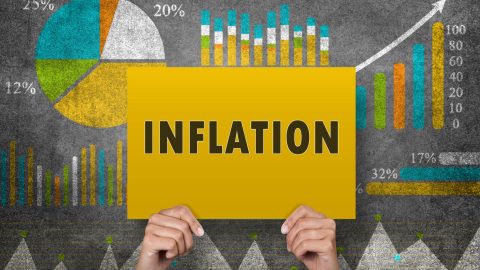Ten years ago, the investment bank Lehman Brothers’ insolvency escalated the financial crisis, driving the global economy to the brink of collapse. Although the worst consequences of the crisis have been averted and stock markets have risen again, the after-effects of the crisis can still be felt today.
The financial crisis on the US real estate market began with mortgage banks increasingly granting badly secured real estate loans. These were securitised and placed with investors as a form of investment. When US housing market prices plummeted, rendering many mortgages worthless, global interdependencies caused a cascade. This reached its peak with the bankruptcy of the renowned US investment bank Lehman Brothers in September of 2008.
The Lehman bankruptcy made huge waves in the stock markets; distrust of the financial system spread rapidly around the globe. World trade saw a significant dip, plunging many countries into a recession. In the US, the economy shrank for four consecutive quarters, and unemployment rose to its highest level since the 1980s.
During the financial crisis, bailout packages and rate cuts saved banks and markets from collapse
Governments and central banks responded to the financial crisis with immediate emergency measures. The US as well as many European countries provided massive government aid and bailout packages, saving numerous banks and insurers from collapse. A few weeks after the Lehman bankruptcy, the world’s premier central banks lowered their key interest rates in a theretofore unseen concerted effort.
With further cuts, the central banks lowered their key interest rates to zero in order to re-ignite loans and investments, and boost the economy. The European Central Bank (ECB) successively lowered its interest rates until 2014 and finally even demanded penalty interest rates for bank deposits. Meanwhile, central banks attempted to lower interest rates on the financial markets through large scale bonds acquisition. The ECB began buying bonds in 2010, with an extensive EUR 60bn-per-month purchasing program to follow later.
In Europe, the financial crisis exacerbated Greece’s financial situation. Starting in 2010, the EU partner countries and the International Monetary Fund saved the debt-ridden country from bankruptcy with a total of EUR 289bn in subsidised loans. The Greek debt crisis reached its peak in 2015, when Greek banks were forced to close for three weeks following the country’s imminent insolvency. In the summer of 2017, the last part of the euro bailout package for Greece expired, so the country has to carry its own weight again financially.
In the meantime, the stock markets have recovered again. Leading international indices such as the Dow Jones and the German DAX have returned to their pre-crisis levels and climbed to new all-time highs, and the US recession has long since passed. However, key interest rates paint an ambiguous picture. While the US Federal Reserve has already begun to raise its interest rates again, the ECB’s interest rates practically remain at zero. The crisis is also affecting the real estate market; in countries such as Germany and Austria, prices for apartments have risen sharply in view of record low interest rates. The general conditions in the financial sector have also changed as a result of the crisis: since 2008, international supervisory authorities’ strict capital requirements have forced banks to be more robust.
Disclaimer:
Forecasts are not a reliable indicator for future developments.
Legal disclaimer
This document is an advertisement. Unless indicated otherwise, source: Erste Asset Management GmbH. The language of communication of the sales offices is German and the languages of communication of the Management Company also include English.
The prospectus for UCITS funds (including any amendments) is prepared and published in accordance with the provisions of the InvFG 2011 as amended. Information for Investors pursuant to § 21 AIFMG is prepared for the alternative investment funds (AIF) administered by Erste Asset Management GmbH pursuant to the provisions of the AIFMG in conjunction with the InvFG 2011.
The currently valid versions of the prospectus, the Information for Investors pursuant to § 21 AIFMG, and the key information document can be found on the website www.erste-am.com under “Mandatory publications” and can be obtained free of charge by interested investors at the offices of the Management Company and at the offices of the depositary bank. The exact date of the most recent publication of the prospectus, the languages in which the key information document is available, and any other locations where the documents can be obtained are indicated on the website www.erste-am.com. A summary of the investor rights is available in German and English on the website www.erste-am.com/investor-rights and can also be obtained from the Management Company.
The Management Company can decide to suspend the provisions it has taken for the sale of unit certificates in other countries in accordance with the regulatory requirements.
Note: You are about to purchase a product that may be difficult to understand. We recommend that you read the indicated fund documents before making an investment decision. In addition to the locations listed above, you can obtain these documents free of charge at the offices of the referring Sparkassen bank and the offices of Erste Bank der oesterreichischen Sparkassen AG. You can also access these documents electronically at www.erste-am.com.
N.B.: The performance scenarios listed in the key information document are based on a calculation method that is specified in an EU regulation. The future market development cannot be accurately predicted. The depicted performance scenarios merely present potential earnings, but are based on the earnings in the recent past. The actual earnings may be lower than indicated. Our analyses and conclusions are general in nature and do not take into account the individual characteristics of our investors in terms of earnings, taxation, experience and knowledge, investment objective, financial position, capacity for loss, and risk tolerance.
Please note: Past performance is not a reliable indicator of the future performance of a fund. Investments in securities entail risks in addition to the opportunities presented here. The value of units and their earnings can rise and fall. Changes in exchange rates can also have a positive or negative effect on the value of an investment. For this reason, you may receive less than your originally invested amount when you redeem your units. Persons who are interested in purchasing units in investment funds are advised to read the current fund prospectus(es) and the Information for Investors pursuant to § 21 AIFMG, especially the risk notices they contain, before making an investment decision. If the fund currency is different than the investor’s home currency, changes in the relevant exchange rate can positively or negatively influence the value of the investment and the amount of the costs associated with the fund in the home currency.
We are not permitted to directly or indirectly offer, sell, transfer, or deliver this financial product to natural or legal persons whose place of residence or domicile is located in a country where this is legally prohibited. In this case, we may not provide any product information, either.
Please consult the corresponding information in the fund prospectus and the Information for Investors pursuant to § 21 AIFMG for restrictions on the sale of the fund to American or Russian citizens.
It is expressly noted that this communication does not provide any investment recommendations, but only expresses our current market assessment. Thus, this communication is not a substitute for investment advice, does not take into account the legal regulations aimed at promoting the independence of financial analyses, and is not subject to a prohibition on trading following the distribution of financial analyses.
This document does not represent a sales activity of the Management Company and therefore may not be construed as an offer for the purchase or sale of financial or investment instruments.
Erste Asset Management GmbH is affiliated with the referring Sparkassen banks and Erste Bank.
Please also read the “Information about us and our securities services” published by your bank.
Subject to misprints and errors.



